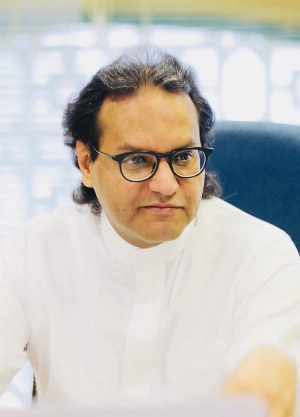With the fleeing of former Syrian President Bashar al-Assad, the collapse of the Syrian army, and the fall of cities such as Damascus, Homs, Aleppo, Hama, and Sweida into the hands of armed opposition factions, an important chapter in Syria’s modern history has drawn to a close.
For nearly six decades, the Assad regime—first under Hafez and then his son Bashar—dominated the nation.
Now, Syrians face immense challenges as they embark on rebuilding their country.
Foremost among these is restoring security and stability to enable the return of millions of displaced Syrians and refugees to their homes. This process will require extensive reconstruction efforts.
However, I hope this critical period will not be marred by prolonged conflicts, internal divisions, or external interventions.
I have personally met Bashar al-Assad face-to-face on at least three occasions during his rule, including one extended discussion.
From closely following Syria’s affairs, I observed that, since the start of the Syrian revolution in 2011, Assad was no longer the man at the helm.
From the early days of his rule, he relied on foreign forces and external powers to defend his regime, despite inheriting an army once strong enough to confront Israel on equal footing during the 1973 Arab-Israeli War.
Yet, this same army ultimately withdrew from all its strongholds, including the buffer zone along the Israeli border.
With Assad’s flight and the collapse of his regime, Syria’s future now hangs in the balance, opening the door to numerous uncertainties and speculations.
One of the gravest concerns is that regional powers may exploit Syria’s political and security disarray following Assad’s departure, the collapse of the Ba’ath ideology, and the end of its divisive “nationalism.” Such interference could result in further fragmentation of Syrian territory.
Nevertheless, Bashar’s exit and the fall of his regime mark the end of an era of tyranny under the Ba’ath Party, characterized by its oppressive security apparatus, overflowing prisons, enforced disappearances, and deaths under torture.
This is a turning point, offering Syrians an opportunity to reclaim their nation and fulfill the aspirations of the revolution that began in 2011.
The Syrian political spectrum must exercise patience and unity during this critical juncture.
Politicians, leaders, and all factions must prevent external actors from exploiting Syria’s vulnerabilities.
The Syrian people must come together with steadfast resolve to rebuild their nation’s infrastructure, restore its human resources, and create a new, just state that ensures equality and protects its ethnic and religious minorities.
The fallout from Syria’s turmoil has cast a shadow across the Arab world, exacerbating an already grim landscape marked by the bloodshed in Palestine and Lebanon.
However, despite hesitations from some countries in recognizing a “new Syria,” the opportunity for Syrians to address their country’s challenges is immense.
Achieving this requires national unity, inclusive dialogue, and a commitment to smart diplomacy that rebuilds Syria’s international relationships and re-establishes Damascus as a vital player in Arab and global affairs.
Critical questions remain: Where is Syria headed? When will the armed conflicts end? Will extremist groups cease their destructive actions?
The hope is that Syria avoids transitioning from the grip of Ba’athist tyranny to the chaos of extremist mischief.
To achieve this, the new Syria must steer clear of harmful polarization and unproductive alliances.
Regional and international cooperation will be essential to safeguard Syria’s security, identity, and diversity.
Rebuilding a stable and inclusive Syria is a monumental task, but one that its people are undoubtedly capable of achieving.
With their rich cultural mosaic, Syrians can enact civil laws and legislation that enshrine equality and social justice for all citizens.
By doing so, they can lay the foundation for a brighter future, free from the burdens of the past six decades of oppression and conflict.
